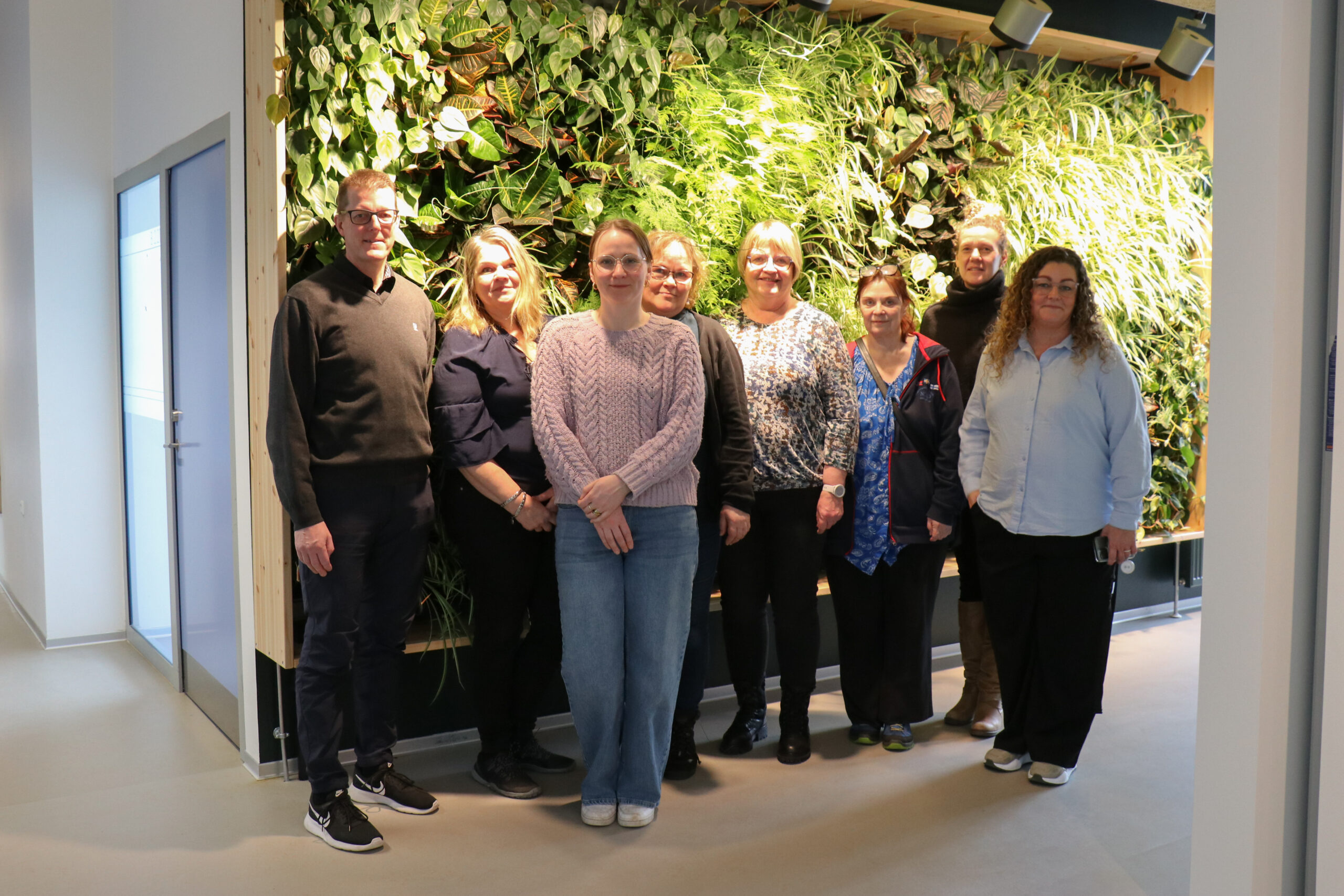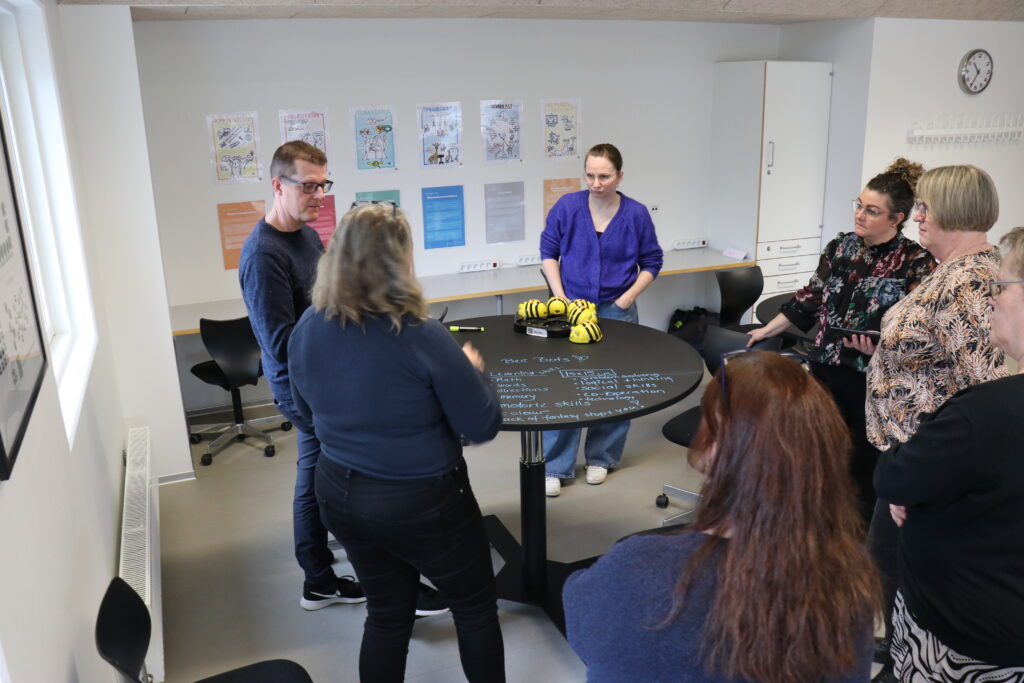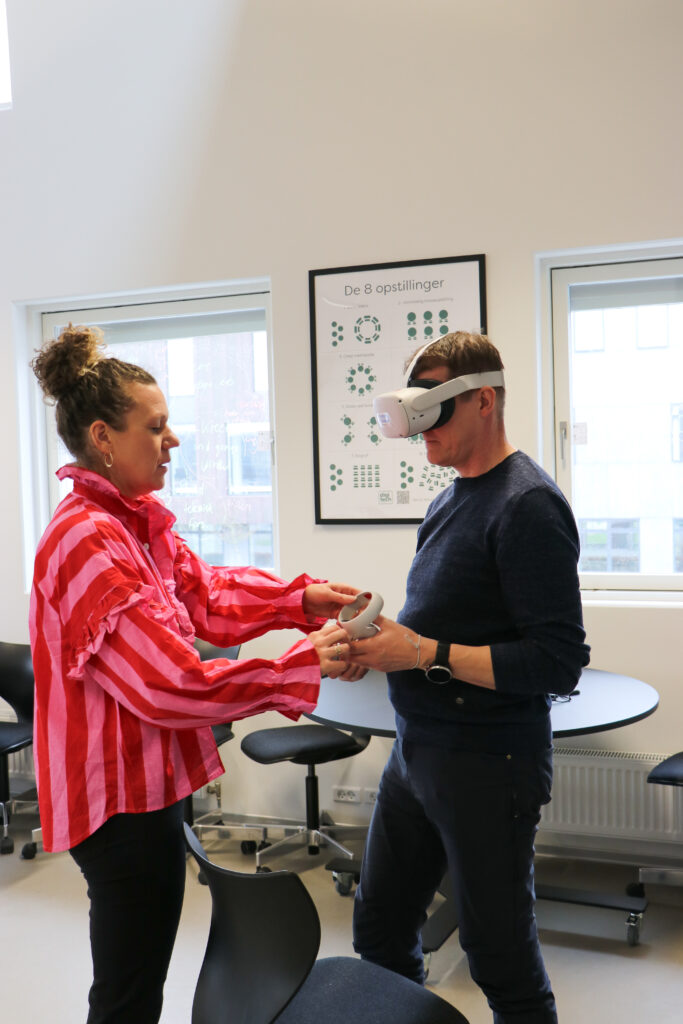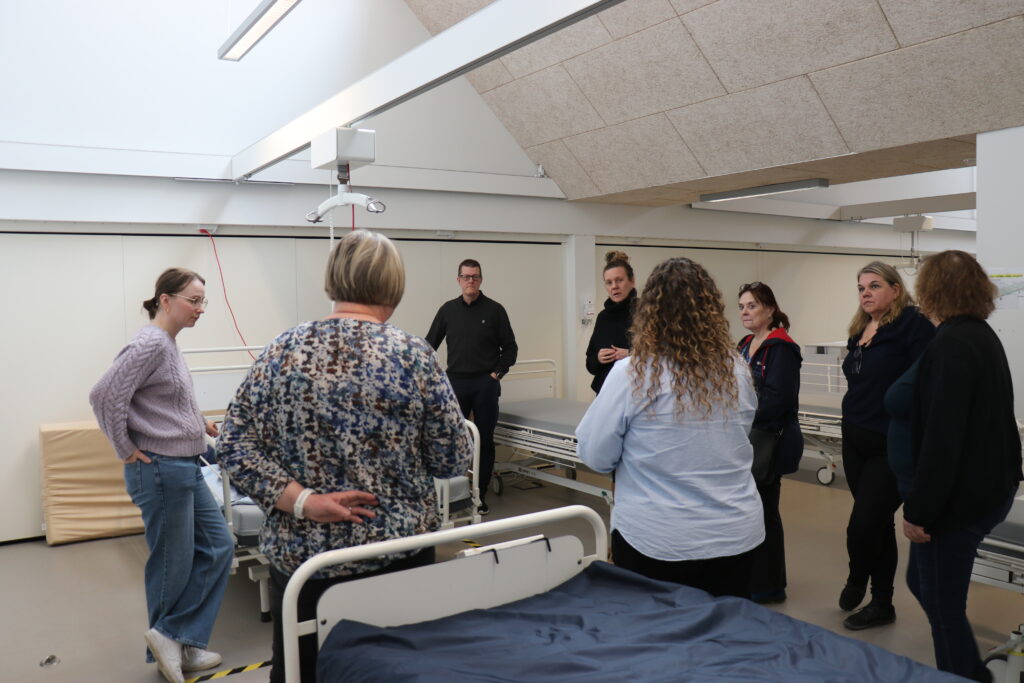
The second workshop of the Future Nordic Social Welfare and Health Care Professionals (FUPRO) partnership project, initiated in September 2023, took place in Aarhus, Denmark in February 2024. The workshop was organized by SOSU Østjylland, which is one of the partners of the project and a vocational school specialized in social and health care.
“What do you know now, and what do you want to know more about?”
During the workshop, visitors from Vocational College Lappia and Utbildning Nord had the opportunity to familiarize themselves with SOSU Østjylland’s premises and the Danish education system.
– It was a pleasure to have our Finnish and Swedish partners visit us. What became clear to me was that we and our school systems are similar in many ways, but also surprisingly different in others. This left room for reflection on why we do things the way we do, and whether we should be doing things differently, European project manager Lisbeth Marcussen from SOSU Østjylland explains.
The primary focus of the workshop was the school’s unique DigiTech line, where social and health care students learn to utilize technology in their work, think critically, and communicate.
– The DigiTech line gave us ideas on how to give students tasks to solve by themselves and how to use different kind of technological equipment, social and health care teachers Päivi Ylisirkka and Anni Alatulkkila from Utbildning Nord say.
According to Riitta Pistokoski and Heikki Alatalo, social and health care teachers from Lappia, the most valuable aspect of the workshop was the exchange of teaching methods among project partners.
– In Denmark, teaching methods emphasized peer learning and reflecting on learning, for example, through questions like ‘What do you know now, and what do you want to know more about?’. When familiarizing oneself with the teaching methods of other Nordic social and health care institutions, one realizes that things can be done in different ways, says Alatalo.


Boosting social and health care education with exciting teaching methods
The challenges in the social and health care sector are similar across the Nordic countries: there is a shortage of workers, and the education does not attract enough students. One goal of the project is to design appealing educational content and teaching methods to meet the future needs of the workforce in Nordic countries.
– Teaching methods in social and health care institutions need to be reconsidered to make education more appealing. Students should feel that they are valued, and learning should be safe and student-centered, emphasizes Pistokoski.
Alatalo agrees on the importance of student-centered education.
– Being student-centered is the foundation of teaching. Things should be done in the best possible way to promote the student’s learning.

The project’s first workshop was held on September 12–13, 2023 at Lappia’s premises in Kemi, introducing the perspective of organizations and students on the current and future state of social and health care education. In mid-September 2024, the project partners will gather at Utbildning Nord’s premises in Övertorneå for the third workshop, continuing the development work in social and health care education. Lappia will host the fourth and final workshop of the project in 2025.
Watch a short video summary of the workshop here!
The Erasmus+-project, led by Lappia and co-funded by the European Union, aims to enhance the skills of teachers and students in vocational education in social and health care. It also aims to design attractive educational content and teaching-learning methods to meet the future needs of the workforce in the Nordic countries. The total funding approved by the Finnish National Agency for Education for the project is 60 000 €, with Lappia’s share being 22 000 €.
